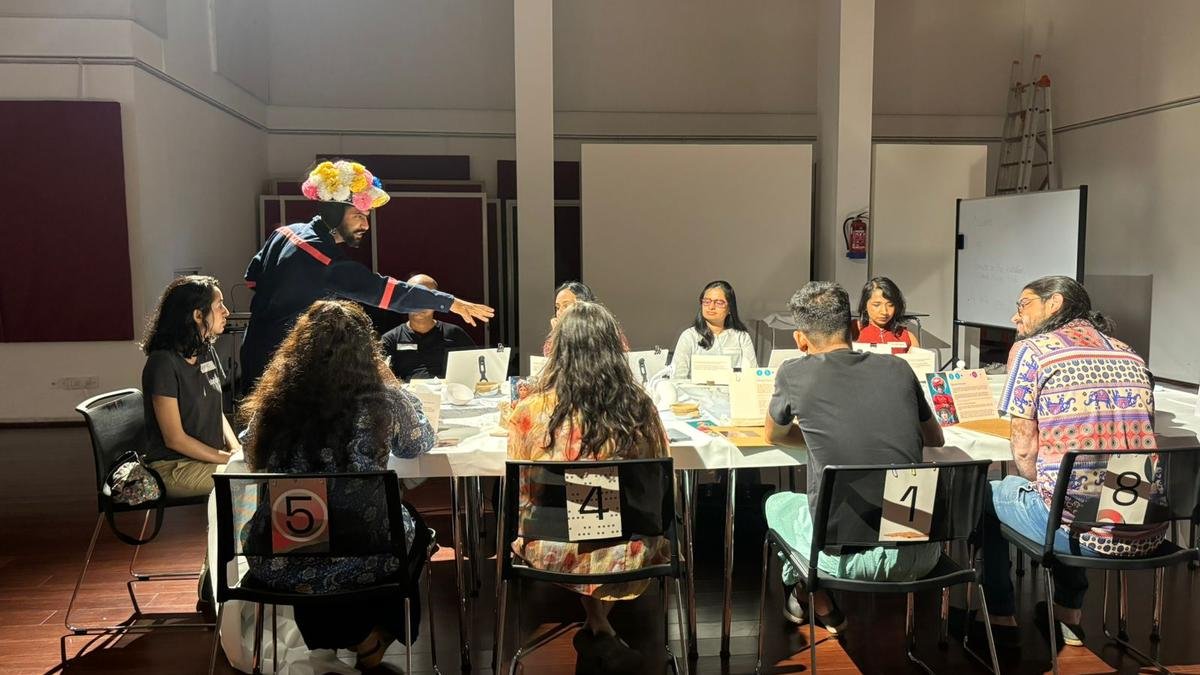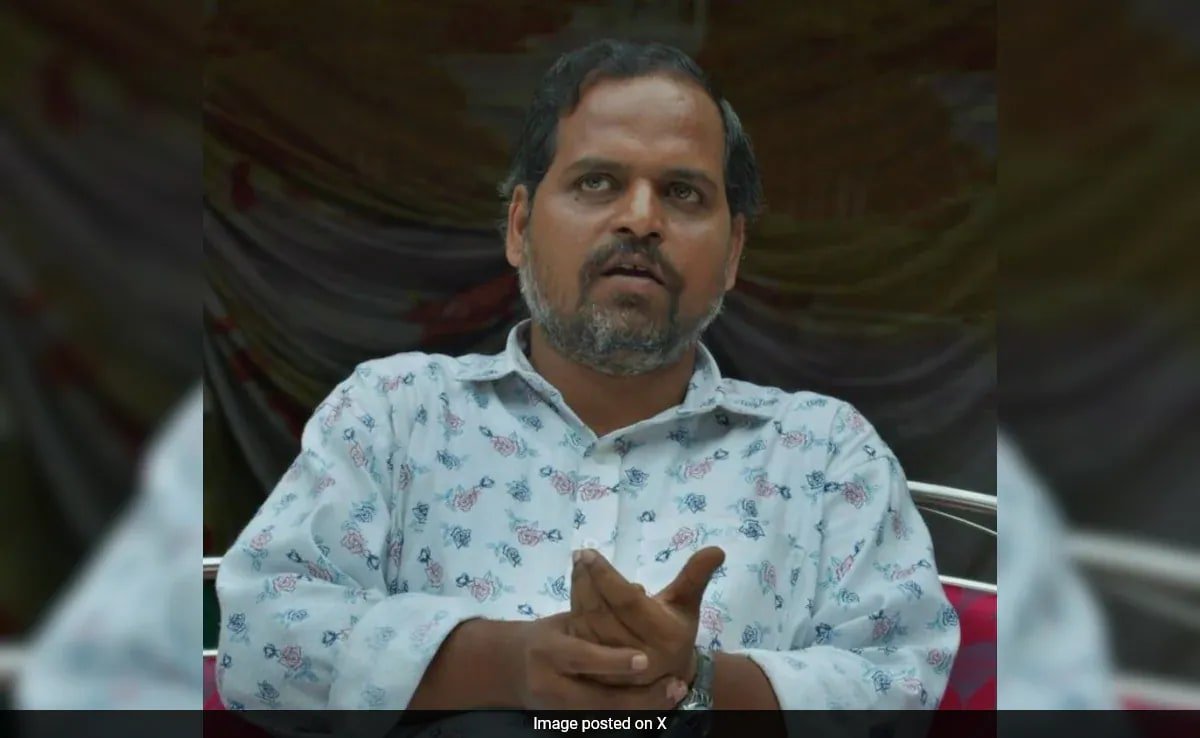Trust me, It’s a Forward! (TMF) Bengaluru-based theatre artiste Karen D’mello’s curious tabletop game is an interactive piece that focuses on trust in the age of propaganda and misinformation.
The performance immerses participants in a bustling, fantastical society deep beneath a turbulent ocean, where factions face crises and make pivotal decisions.
The game had nine participants from various age groups who were given pictures and audio describing the scenario — they were living on a moon orbiting a gas giant far from the heliosphere. The moon, prone to electric storms, concealed a verdant ocean and the participants were living in a subaquatic station anchored to ice, housing about 20,000 residents.
Having lost contact with Earth centuries ago, the inhabitants had forgotten their original purpose. Each participant receives a card with a number, assigning them a character such as a doctor, cetologist, or metalworker. The game consisted of six rounds, each with three phases: the game master posed a question, players answered positively or negatively, and then earned or lost tokens based on their answers.
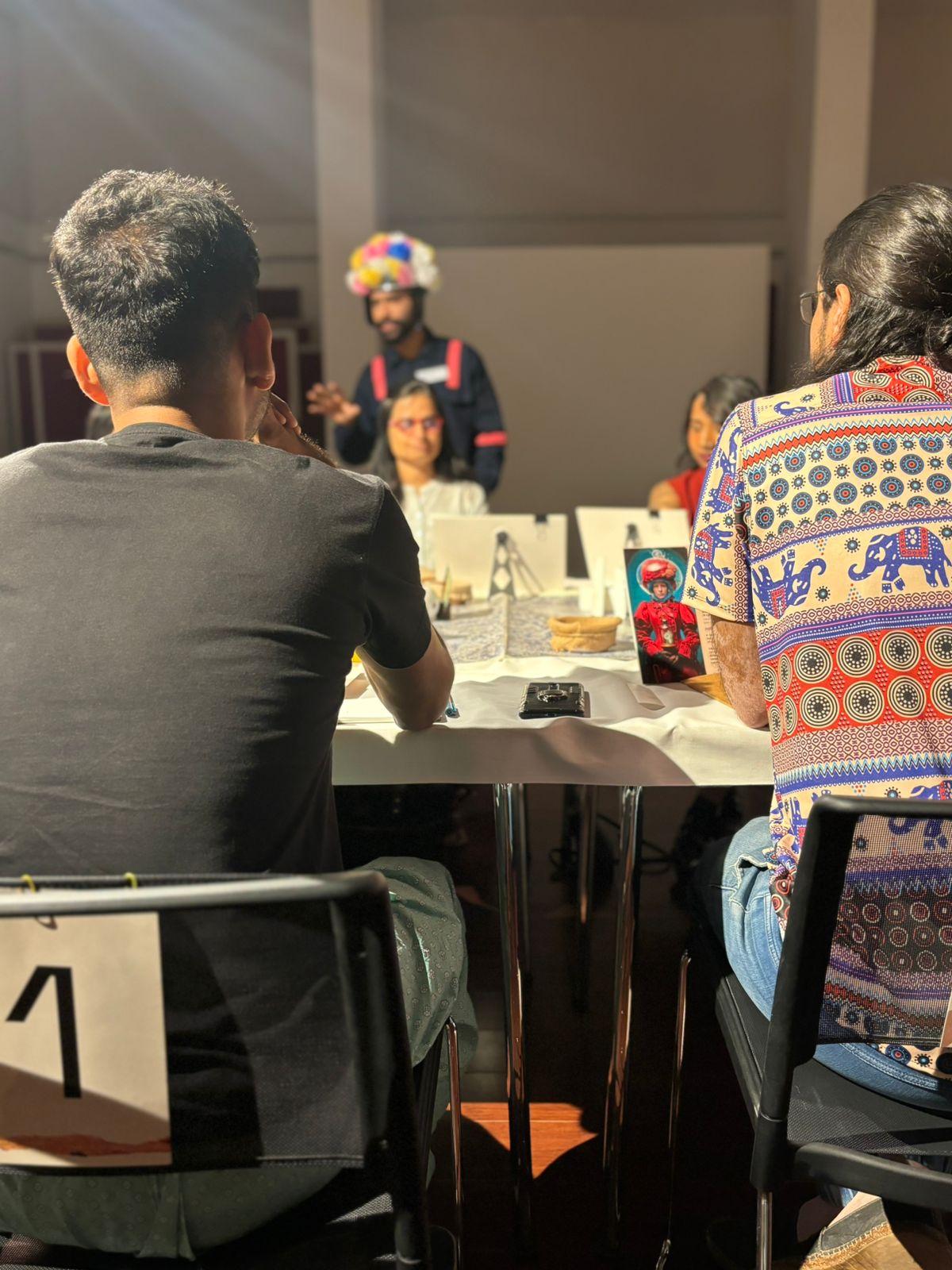
TMF by Karen D’Mello in progress
| Photo Credit:
Special Arrangement
Next, participants received pouches with red and blue tokens, crucial to the game’s outcome. Winning a round meant drawing a red token while losing involved randomly drawing a token without looking. Participants heard an audio clip and analysed cards at the beginning of each round to understand the situation.
The majority vote determined the round’s outcome, with those answering correctly earning a red token and advancing. In the final round, participants debated whether to send a signal to Earth or rebuild the camp. Ultimately, three of the nine participants survive and win the game.
According to Karen D’Mello, the objective of the game was to create a space where individuals, who may not have the opportunity to engage with one another formally, could interact. Despite being strangers working in the same digital isolation, they would be required to handle the same information in different ways.
“The two things I wanted to do with TMF were: first, to move it out of the digital world and bring it into an analogue space. This was done in anticipation that it would provide a different way of looking at the same thing; to find out if it offered a new perspective when you changed the medium.”
“Second was to set the game in a fantasy world, where you have to play a role whether you align with it or not. Of course, having fun and enjoying the process, was also part of it.”
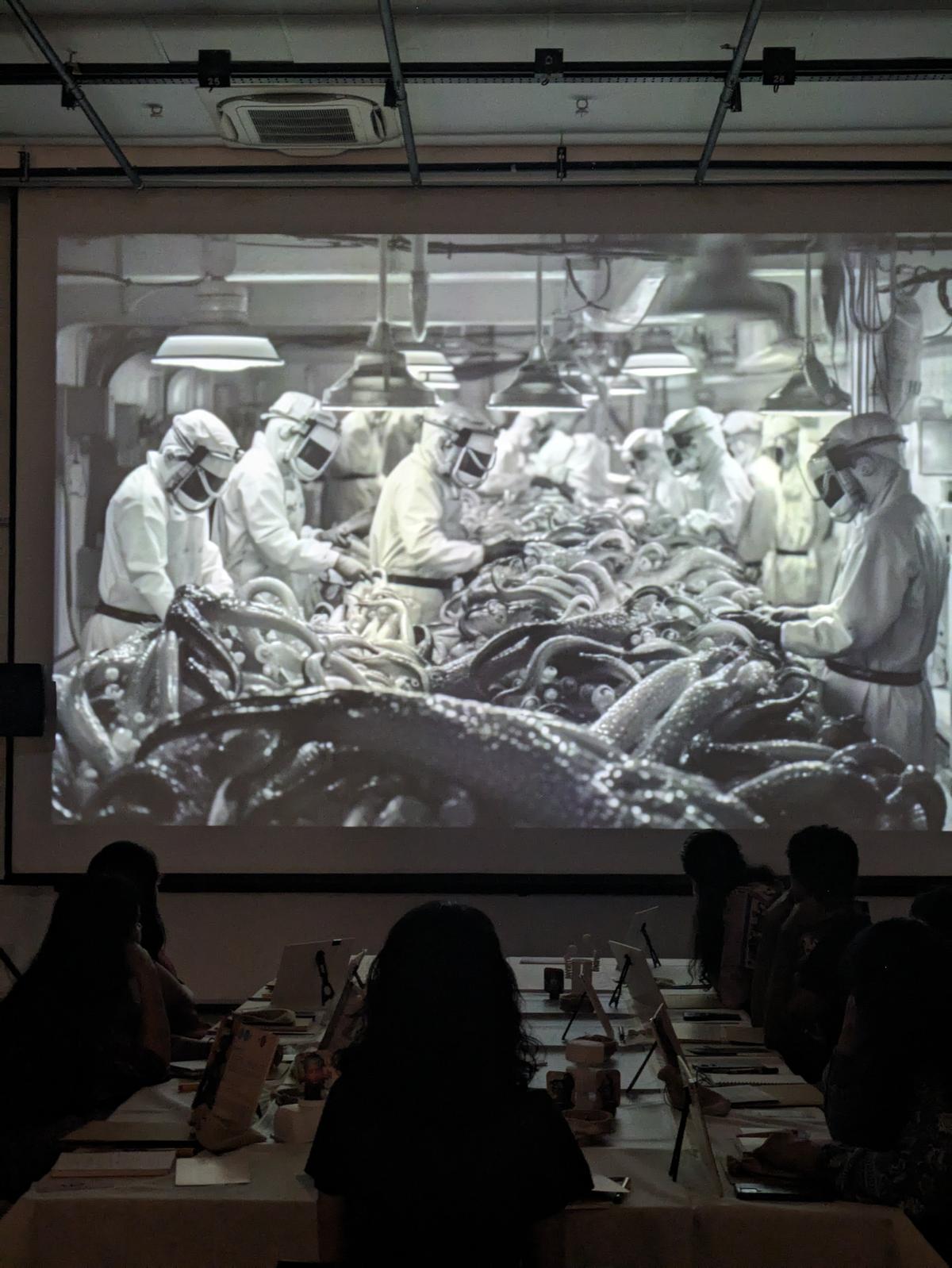
TMF by Karen D’Mello in progress
| Photo Credit:
Special Arrangement
The theme focused on building trust in a shared space and participants were asked how they related to the game. For most, it reminded them of the pandemic and how, while going with the flow, one had a tendency to forget their main objectives.
When asked about the inspiration behind creating the game, Karen explained, “The format of the game is not necessarily new. However, by “creative interventions,” I refer to the broader connection with other activities people engage in. As a theatre maker, I don’t want to be confined to a single form. I wanted to explore innovative ways to address issues such as misinformation, information overload, and the information data system.”
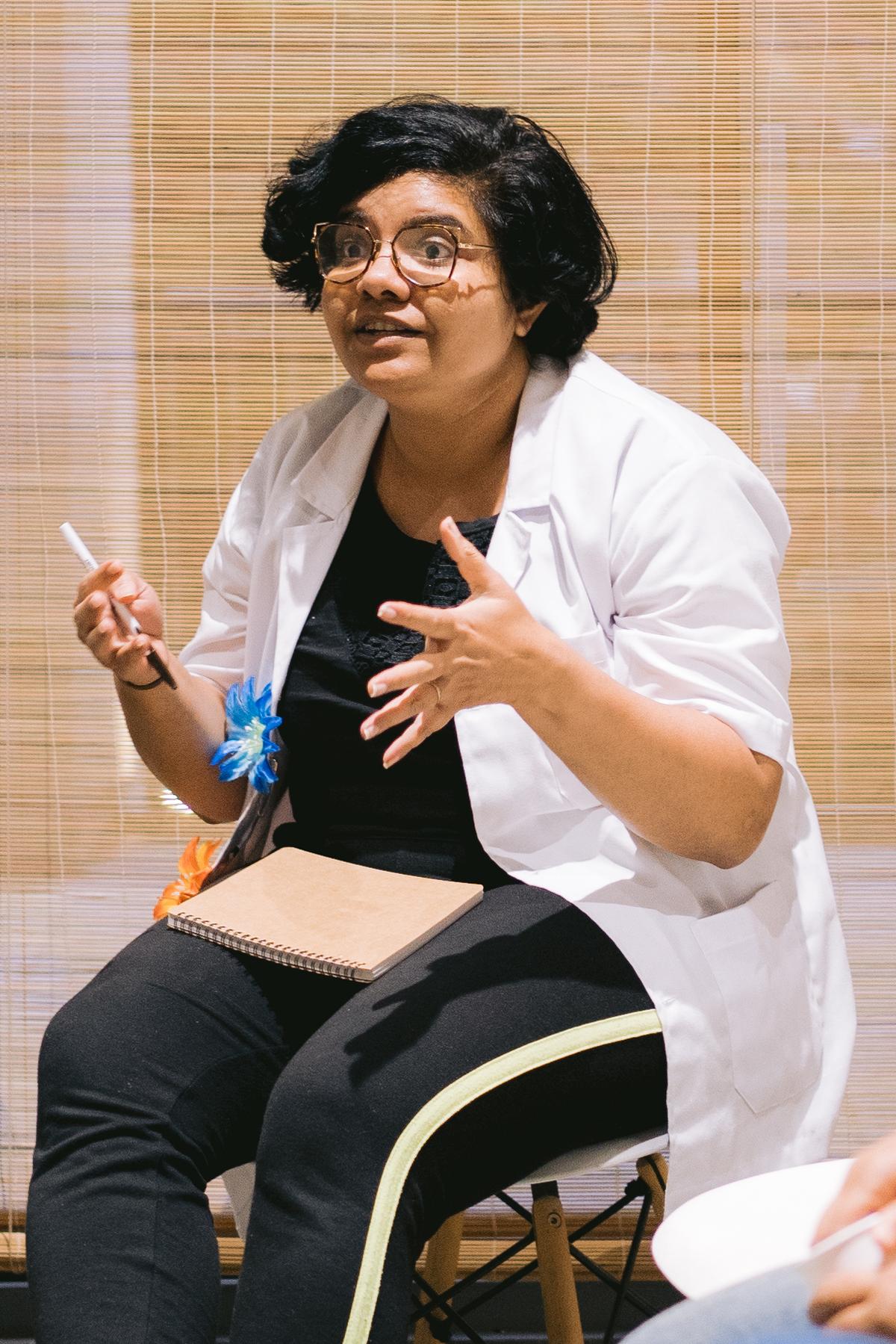
Karen D’Mello
| Photo Credit:
Special Arrangement
“This game is an intervention that encourages participants to engage more of their senses, to fully immerse themselves, to have fun, and to come together as a collective. This aspect of coming together is something I deeply value and draw from theatre.”
About her experience in developing a game, Karen said, “We are a theatre company that does creative stuff, but we are also trying to see what our creative interventions can do. I have never worked on a game, so we collaborated with Studio Oleomingus, an independent art studio by Dhurv Jani and Sushant Chakraborty in Chala, Gujarat.”
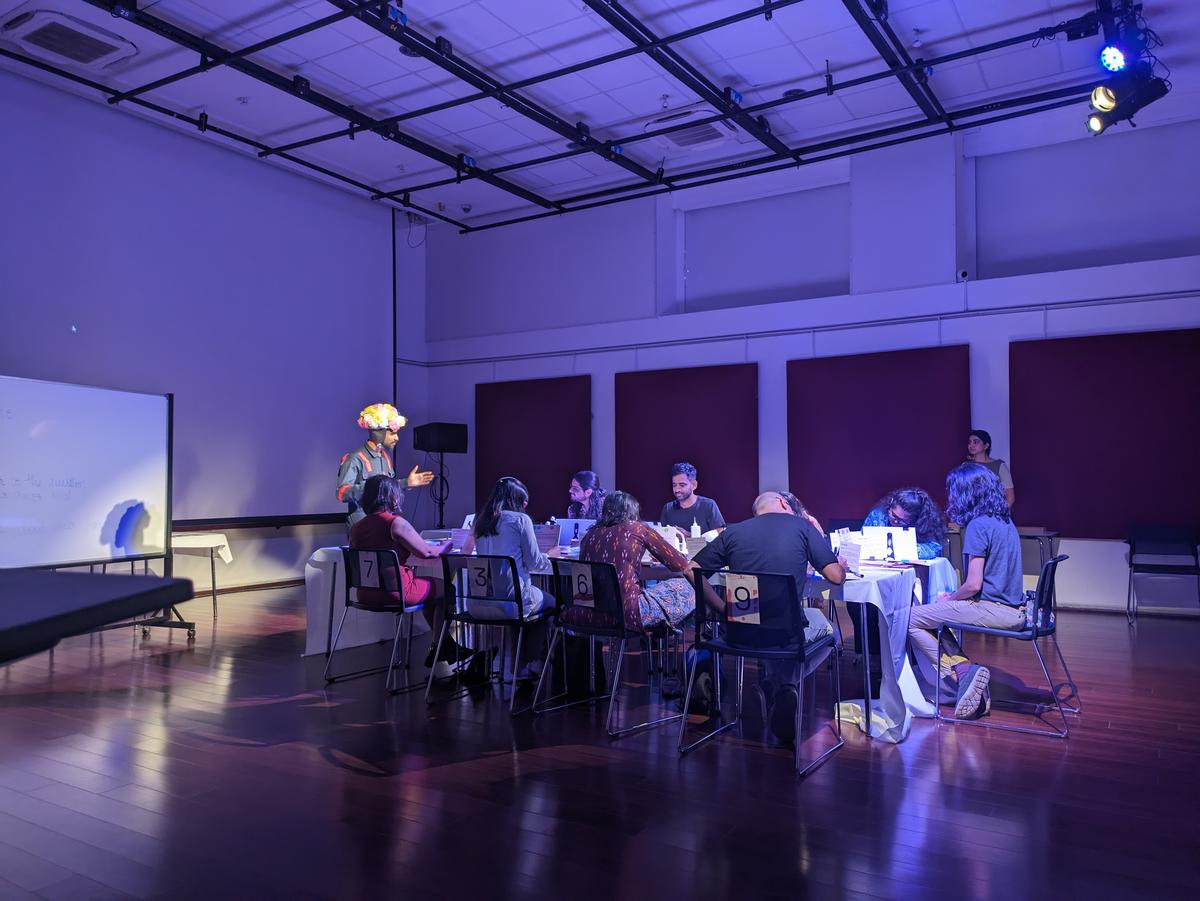
TMF by Karen D’Mello in progress
| Photo Credit:
Special Arrangement
TMF combines elements of game design and theatre production, created within a two-month timeframe. Karen noted that while the game’s setting remains constant, its dynamics are always evolving, offering a new experience each time. “Although it is challenging to replicate the game exactly due to its complex algorithm, people can modify and create their own versions.”
Karen adds that though there are no current plans to scale this format further, the team is working on a second version of the game.
The next session of Trust me, It’s a Forward! will be held at Goethe-Institut, Indiranagar, on June 8, at 11 am and 4 pm. Interested parties are required to fill out a Google form, available on theatre group Kathasiyah’s Instagram handle @kathasiyah.
